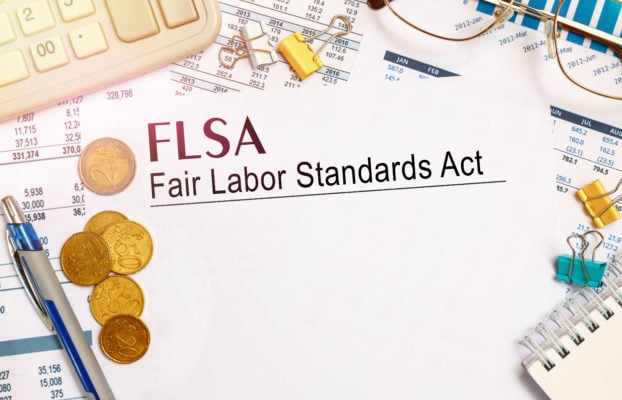For All Your Hard Work You Deserve to Get Paid Back Wages Overtime Penalties Punitive Damages
Pay Us Nothing Unless We Win Your Employment Wage and Hour Case.
Meal and Rest breaks
Work Off the Clock
Minimum Wage
Employment Wage and Hour
You deserve to get paid. In fact, laws enacted at the federal level, as well as in California, require employers to pay workers for every minute punched on the clock.
Unfortunately, far too many employers violate state and federal employment wage laws. From failing to pay overtime to a team of construction workers to holding tips from workers in the hospitality industry, many employers do not follow the most basic standards for compensation and the number of hours worked.
If you worked for an employer that has cheated you out of your hard-earned pay, you should contact a California employment attorney to determine the best course of action. Although you should come away from this page better informed about California and federal employment wage and hour laws, an experienced employment lawyer can provide the guidance you need to get paid what you deserve under the law.
Federal Standards
Considered by many employment attorneys to be the gold standard for labor laws, the Fair Labor Standards Act (FLSA) became law at the height of The Great Depression to level the legal playing field between workers and employers. Some of the legal issues covered by the FLSA include the minimum wage, overtime, and minimum age requirements for workers. Most states have enacted employment wage and hour laws that mirror the legal structure of the FLSA. However, many of the states enacting FLSA-like employment wage and hour laws have established higher minimum wages and/or tougher legal sanctions for employers that violate overtime statutes.
Federal employment wage and hour law requires employers to pay workers a minimum wage of $7.25. Because tipped employees earn money outside of an hourly wage, the federal minimum wage for tipped employees currently sits at $2.13. The United States Congress last raised the federal minimum wage in July of 2009. Some political observers believe the federal minimum wage might go as high as into the double digits before the end of 2021. Employers must pay workers under the age of 20 a minimum of $4.25 per hour for the first 90 days of employment. The first 90 days of employment include both days worked and days not worked.
According to the FLSA, employers are not limited to how many hours in a day or a week they can require employees to work. Nonetheless, employers must compensate employees for every hour worked after 40 hours at an hourly rate that is one and a half times the regular hourly rate. The time and a half rate applies to every hour worked over 40 hours during the same workweek. Employers define when a workweek starts and when a workweek ends. The only common element is a workweek constitutes seven consecutive days.
The FLSA does not establish a minimum number of employees for an employer to have a legal obligation to follow the statutes written into the federal employment wage and hour law. Many states have filled the legal void by establishing a minimum number of employees standard for compliance with state employment wage and hour laws.
Penalties for Violating Federal Wage and Hour Laws
Enforcing the FLSA falls on the collective shoulders of investigators that work at the Wage and Hour Division. The investigators collect data concerning hours, wages, and any other employment practice and condition that determines compliance with the provisions written into the FLSA.
Employers that commit willful violations of the FLSA can face a fine as high as $10,000 for each violation. Repeat willful offenders of the FLSA might receive a conviction for a criminal offense. Violations of child labor statutes can cost an employer up to $10,000 for each employee that is covered by child wage and hour laws. Employers that willfully violate overtime and minimum wage requirements face a civil penalty of up to $1,000 for each violation. For example, an employer that fails to pay the minimum wage to 20 workers can face a cumulative penalty of up to $20,000.



California Standards
As with many other areas of law, California has established some of the most worker-friendly employment wage and hour laws of any other state.
California sets the minimum wage based on the size of an employer. For 2021, employers that have up to 25 workers must pay a minimum wage of $13.00, while employers with more than 25 employees pay $14.00 for a minimum wage. When the calendar turns to 2023, California plans to eliminate the size criteria for employers by mandating all employers to pay a minimum hourly wage of $15.00. Coincidentally, $15.00 is the minimum wage mentioned in United States congressional labor committee meetings.
Although the FLSA and some states give employers the right to pay tipped workers at a lower minimum wage, California continues to include tipped employees for coverage in the state’s general minimum wage law. California employers that have tipped workers n their payroll must pay the workers the same full minimum wage that other types of employers pay their workers.
Californians that work more than eight hours in a day or 40 hours in a week must receive overtime pay. How California employment wage and hour law differs from the FLSA regarding overtime is that in California, a worker that works more than 12 hours in a day receives double time for every hour worked after 12 hours. Not every type of job qualifies workers for overtime pay in California.
Workers in California must receive a 30-minute, unpaid break after working five consecutive hours. The same employee who took a 30-minute, unpaid break after five consecutive hours of work is eligible for another 30-minute, unpaid break after five more consecutive hours of work. An employee can decline the second unpaid break if the employee took the first 30-minute unpaid break. Employees also get to take a paid rest break after every four hours worked.
Penalties for Violating California Wage and Hour Laws
California law imposes some of the strictest penalties for wage and hour violations in the country. If you win a civil lawsuit for unpaid wages, you receive the compensation withheld from you by your employer, as well as any punitive damages your employer has to pay.
FAQs About Employment Wage and Hour Laws
Because of rapidly changing statutes at the state and federal level, employment wage and hour laws can be difficult to understand. Before we dive into the details of employment wage and hour laws, let’s answer five common questions asked to employment attorneys by their clients.
Read What Our Clients Have to Say....
He gets the job done! My husband and I sought John Miser as an attorney to assist us with a bad vehicle purchase. John was very professional, prompt, and explained the thoroughly explained the process every step of the way. He fought to get us everything we were entitled. Everything turned out Great! Highly recommend!
Cheri
Learn More About Your Employment Wage and Hour Rights...
We love sharing our knowledge to help educate others.
Taking the Next Step, Contact an Employment Lawyer who specializes in Wage and Hour Claims
The financial compensation granted to an employee that wins a wage claim and/or civil lawsuit can run into the thousands of dollars. You also have the right to ask your employer to cover the cost of court and attorney fees as well. With all that money at stake, it makes sense to get the legal support of an experienced California employment attorney who specializes in handling wage and hour cases.
Your lawyer will conduct a thorough review of your case to determine how to proceed. You can expect your employer to have legal counsel, which means it is important to gain legal representation to argue your case. Your attorney ensures you file the right paperwork before each deadline, as well as helps you gather and organize persuasive evidence for when you file a claim and/or a civil lawsuit.











